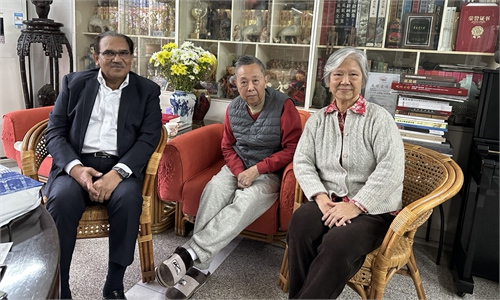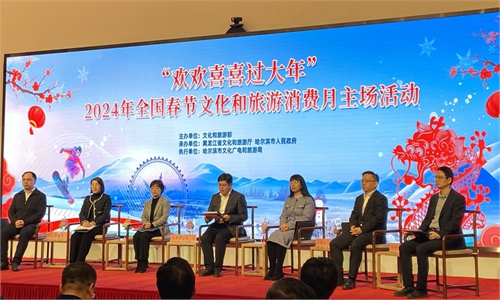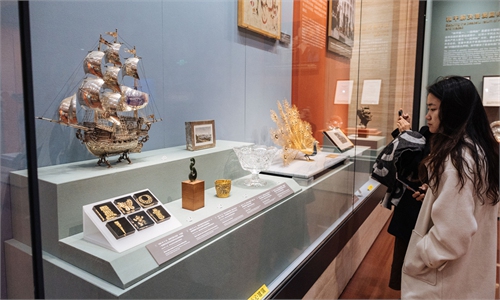ARTS / CULTURE & LEISURE
Savage trade ensues as interactive K-pop idol events expand in China

One of the K-pop bands BTS Photo: Courtesy of BTS' Twitter
From hyped-up prices to poor experiences at fan meets, K-pop stars and bands' increasing participation in the Chinese entertainment market is boosting a "savage fan business" that needs to be addressed.
The phenomena particularly emerged after the COVID-19 pandemic, as many fans in China embarked on a "retaliatory" pursuit of their favorite K-pop stars. What should have been a joyful mutual interaction between fans and celebrities has given rise to an unregulated market for scalpers.
"Domestic fan signing events are too expensive," Ling Ling (pseudonym), a K-pop fan, said that his idols' first signing event ever in China "hit a staggering price tag of five figures." Meanwhile, tickets for a signing event ticket for another popular band in China reached 50,000 yuan ($6,933).
Despite these exorbitant prices, experiences are not living up to expectations as many fans are complaining online.
"The schedule is very tight, and they keep rushing you at the event," a fan wrote on Sina Weibo.
"Other interactions such as greetings, impromptu dances and gifts, which are common to see at the events in South Korea, are absent in China," a fan nicknamed Paopao, who previously participated in a signing event for South Korean entertainment company YG's band boy Winner, recalled.
According to public data, more than 20 K-pop bands, including popular groups such as (G)I-DLE, NewJeans, LE SSERAFIM, IVE, and EXO, have held signing events in cities such as Beijing, Guangzhou, Macao and Qingdao. Just like writers' book signing events, album signing events allow Chinese fans to get closer to their idols through personal interaction.
Signature scalpers are another issue. The booming market has given birth to another service: proxy signing businesses, where fans pay those at signing events to get their idols' signatures and even get voice messages recorded for them.
For a popular idol, it can cost around 2,000 yuan for a signature pack: a signature with the fan's name on it, and a voice message from the idol. Those services and signature packs for popular idols can be found on China's second-hand selling platform Xianyu for high prices.
For example, a signature of a member of the girl group IVE gotten at an event in Qingdao, East China's Shandong Province in December is selling for 700 to 1,000 yuan on the platform. Meanwhile, a 10-second voice message for a member of the girl band aespa goes for 360 yuan on the platform.
With the increase in domestic activities and the end of the pandemic, the interaction between Chinese fans and K-pop idols has grown over the past year. In addition to those public signing events, festive music concerts organized by Chinese entertainment companies are another main channel for dance and singing stars to widen their influence in the Chinese market.
As a result, the closer contact between Chinese fans and K-pop has unexpectedly led to outbound cultural output.
For example, popular Douyin dances like "My Surname is Shi" and "Subject Three" have been performed by many K-pop idols on short video platforms to win the hearts of Chinese fans.
"They [K-pop idols] need these interactions and high exposure in China. Although the number of events has dropped by a great deal, the frequency of their exposure in the Chinese entertainment market has not yet fallen as social media is the main channel for them to promote themselves," a Seoul-based Chinese/K-pop fan named Li Xuan told the Global Times on Sunday.
A testament to the power of social media, a video made by a blogger named Salty33 showing his personal experience participating in a signing event of his favorite K-pop group received nearly 400,000 likes.
Public statistics show that in December alone, more than 50 hashtags related to K-pop topics, ranging from groups like BTS and BLACKPINK to aespa, have trended on China's Sina Weibo.




